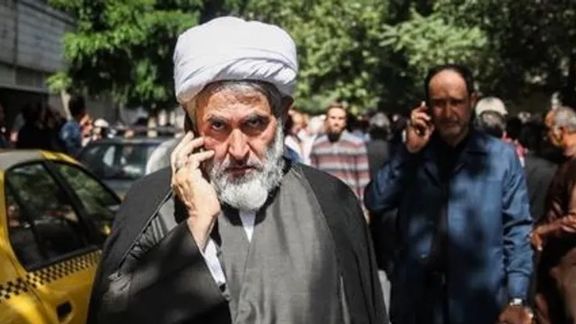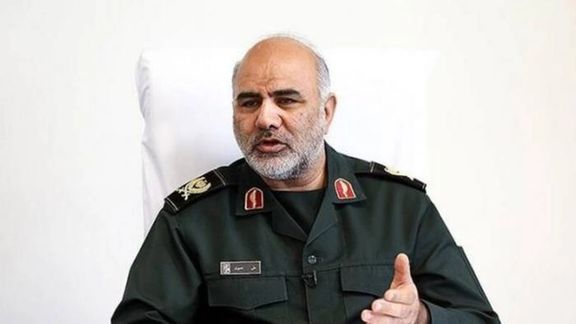Israel Octopus Doctrine Seeks To Expose Iran Intelligence Failings

In another apparent twist at the top of Iran’s Revolutionary Guards, the New York Times claimed Wednesday that Brigadier-General Ali Naseri was arrested a month ago.

In another apparent twist at the top of Iran’s Revolutionary Guards, the New York Times claimed Wednesday that Brigadier-General Ali Naseri was arrested a month ago.
The Times was vague on Naseri’s position in the Guards (IRGC) and how it related to the removal last week of Hossein Ta’eb, the Guards (IRGC) intelligence chief, in the face of disquiet in senior circles over Iran’s response to a covert Israeli campaign.
Iran International has reported disquiet among top ranks over intelligence failures demonstrated by the May 22 assassination of IRGC Quds (Qods) Force colonel Hassan Sayyad in Tehran, while state media has also implied that the deaths of two aeronautical staff in late May and early June were suspicious.
The New York Times quoted Keren Hajioff, senior advisor to Israeli prime minister Naftali Bennett, that Israel was following a “new tactic” based on Bennett’s ‘Octopus Doctrine.’ The advisor said: “Now we go straight for the head,” instead of IRGC’s proxies in the region such as the Lebanese Hezbollah.
The paper cited an unnamed Israeli official that “part of the strategy entailed exposing failures by the Revolutionary Guards in their covert war with Israel in the hope that it would create conflict between political leaders and the defense and intelligence establishment.” Rivalries within the IRGC – with Esmail Ghaani (Qaani), head of the IRGC extraterritorial Qods Force, and Esmail Khatib, intelligence minister, critical of Ta’eb – would suit the Israelis’ approach.

The Times described Naseri as “a senior commander in the Revolutionary Guards’ Protection of Information Unit, tasked with oversight and supervision of the organization’s work,” although the paper sourced this to an April 21 2019 story from Radio Farda that Naseri had been replaced in that position. The Iranian Students News Agency also reported at the time that Naseri had been removed.
‘Criminal media networks’
Two months later, on June 11, 2019, IRGC spokesman Ramezan Sharif addressed what he called rumors of the arrests or fleeing of commanders. These were efforts by Iran’s enemies to cause disruption through “criminal social media networks and media.”
Sharif insisted that three individuals named in various websites – taken to mean Naseri, Mohammad Tavalaee, and Mostafa Rabiee – were “active in new positions” and were “seriously performing in their missions and carrying out their duties,” with some of their public appearances reported in Iranian media.
There had been suggestions at the time that Naseri had fled the country, with the Washington Free Beacon claiming he had defected to an Arab state in the Persian Gulf taking with him secret documents.
The 2019 reports of Naseri’s dismissal came the day before Supreme Leader Ali Khamenei appointed General Hossein Salami as overall commander of the IRGC and two weeks after then US president Donald Trump added the IRGC to the US list of ‘foreign terrorist organizations.’
It remains unclear what position Naseri occupied prior to his recent alleged report. If he had been replaced in 2019, how he could have been trusted with another sensitive post?
So far, three key IRGC intelligence and security figures have been replaced and Ta’eb’s ally, parliament speaker Mohammad Bagher Ghalibaf is being attacked by some hardliners for corruption, an allegation widely believed to be true among Iranian observers who have followed him through his military and political career.